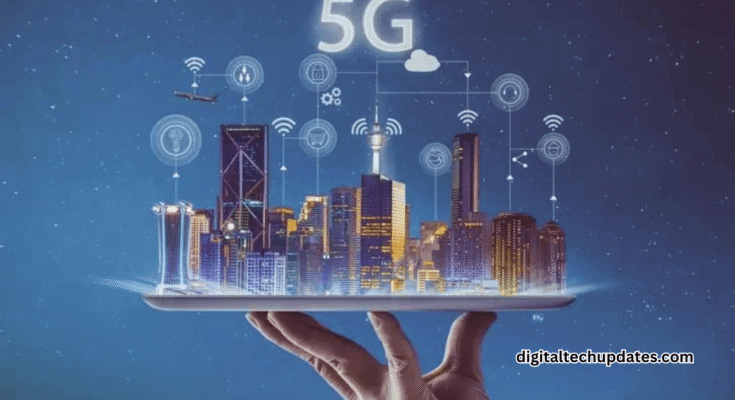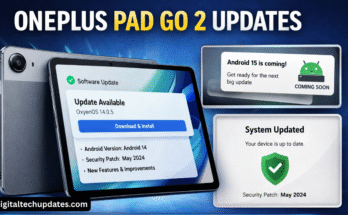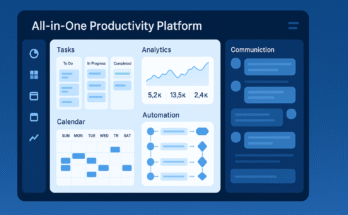Introduction: Why 5G Matters for Businesses in 2025
The fifth-generation mobile network, 5G, is not just a faster internet connection — it is a game-changer for businesses worldwide. By 2025, 5G is expected to be widely available, enabling faster speeds, ultra-low latency, and unprecedented connectivity for enterprises of all sizes.
Businesses across sectors — from healthcare to retail, manufacturing to education — are leveraging 5G to enhance operations, enable IoT devices, improve customer experiences, and support remote work.
In this guide, we’ll explore the future of 5G, how it’s shaping global business strategies, and what companies must do to stay competitive.
What is 5G and How Does It Work?
5G is the fifth generation of wireless technology, succeeding 4G LTE. It offers:
Faster Speeds: Up to 10 Gbps, 100x faster than 4G.
Low Latency: Near real-time response for applications like AR/VR and autonomous vehicles.
Massive Connectivity: Supports billions of connected devices simultaneously.
Enhanced Reliability: Stable connections in dense urban areas.
How Businesses Benefit
Cloud Services: Faster data upload/download for cloud-based applications.
IoT Integration: Seamlessly connect smart devices and sensors.
Real-Time Analytics: Instant access to business intelligence and AI tools.
Global Impact of 5G on Businesses in 2025
a. Manufacturing & Industry 4.0
Real-time monitoring of machinery through IoT sensors.
Predictive maintenance powered by AI analyzing 5G-connected devices.
Reduced downtime and higher productivity.
b. Healthcare
Remote surgeries using robotic tools with ultra-low latency.
Telemedicine with high-definition video streaming.
Real-time patient monitoring through wearable IoT devices.
c. Retail & E-Commerce
AR/VR shopping experiences for customers.
Real-time inventory tracking and automated supply chain management.
Personalized marketing campaigns based on instant analytics.
d. Transportation & Logistics
Autonomous vehicles with real-time traffic updates.
Fleet tracking and route optimization powered by 5G connectivity.
Faster communication between logistics hubs globally.
e. Remote Work & Collaboration
Seamless video conferencing with minimal latency.
VR/AR collaboration tools for global teams.
Cloud-based workflows accessible anywhere with high-speed 5G internet.
Key Technologies Enabled by 5G
Internet of Things (IoT): Connects millions of devices for smarter operations.
Edge Computing: Processes data closer to the source, reducing latency.
Artificial Intelligence: Real-time AI-powered analytics for decision-making.
Augmented Reality (AR) & Virtual Reality (VR): Immersive experiences for training, sales, and marketing.
Smart Cities: 5G enables connected infrastructure for traffic, energy, and security management.
Challenges of 5G Adoption for Businesses
Infrastructure Costs: Upgrading networks and devices can be expensive.
Cybersecurity Risks: More connected devices mean a larger attack surface.
Compatibility Issues: Older devices may not support 5G.
Regulatory Hurdles: Different countries have varied rules for spectrum allocation.
Businesses must carefully plan 5G integration, balancing benefits with investment and security considerations.
Strategies for Businesses to Leverage 5G in 2025
Invest in 5G-Compatible Devices: Upgrade infrastructure for employees and IoT devices.
Adopt Cloud and Edge Computing: Ensure data can be processed locally and globally for speed.
Prioritize Cybersecurity: Implement zero-trust security models and continuous monitoring.
Integrate AI & Analytics: Leverage 5G for real-time insights and predictive decision-making.
Focus on Customer Experience: Use AR/VR, mobile apps, and instant communication to enhance engagement.
Train Teams on 5G Tools: Upskill staff to use new technology effectively.
Real-World Examples of 5G in Action
Automotive Company in Germany: Uses 5G to test autonomous vehicles and real-time navigation.
Healthcare Network in the US: Performs remote surgeries with ultra-low latency 5G connections.
Retail Giant in China: Implements AR/VR shopping and AI-driven customer insights.
Logistics Company in Singapore: Uses 5G-enabled fleet management for real-time tracking.
These examples show how businesses globally are redefining operations and customer experience through 5G.
Future Trends in 5G Business Adoption
6G Research & Early Testing: Already underway in labs for even faster connectivity.
AI-Powered Automation: 5G will support more intelligent automation across industries.
Global Remote Work Expansion: High-speed connections allow true global workforce integration.
Smart Factories & Cities: 5G will enable fully connected and efficient urban and industrial environments.
Enhanced AR/VR Experiences: For training, marketing, and entertainment.
FAQs: 5G Impact on Businesses
Q1: How does 5G benefit small businesses?
A: Small businesses can use 5G for faster internet, cloud tools, remote collaboration, and IoT devices to improve efficiency and reduce costs.
Q2: Is 5G secure for business use?
A: While 5G has enhanced security features, businesses should implement cybersecurity best practices to protect devices and data.
Q3: What industries benefit most from 5G?
A: Manufacturing, healthcare, logistics, retail, media, and technology sectors see the biggest advantages.
Q4: Do all countries have 5G in 2025?
A: 5G adoption varies globally; developed countries have widespread coverage, while others are gradually expanding.
Q5: How does 5G impact remote work?
A: 5G enables seamless video calls, collaboration tools, cloud applications, and low-latency connectivity for global teams.
Conclusion: The Future is 5G-Connected
5G is more than just faster internet — it is a transformative technology that will redefine how businesses operate, compete, and innovate globally in 2025.
Companies that embrace 5G early, invest in infrastructure, and integrate AI, IoT, and edge computing will enjoy faster, smarter, and more connected operations, giving them a competitive edge in the global market.
The future is here, and businesses that leverage 5G effectively will be at the forefront of the next digital revolution.




